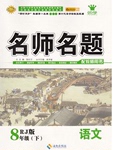题目内容
My earliest bee experience took place at a summer camp. One day our teacher told us to head up the hill nearby. As little kids do, we all began to race to our .The girls took the concrete(水泥)stairs the boys ran straight up the grassy hill, at the top of which sat a long wooden fence. fear the boys ahead of me vaulted(跳跃)over the fence bravely.
What should I do? Take the stairs and look like a girl, or jump the fence and look ? Then I took my chances with the .
Standing in front of the fence, I placed both hands on the top and . The moment of truth had arrived. If I made it, then I would be as cool as all the other guys. If I didn’t make it…
I it. As I jumped, my foot caught on the top of the fence. I went! But I landed on my backside. I to laugh off the accident. But then I something moving under me. Just then I saw what seemed like hundreds of bees flying towards me. I had a beehive! I jumped and as fast as I could. But bees flew faster than I ran. At that moment, all the kids at the camp ran after me, too. What a(an) situation I was in!
When the teacher caught me in the camp parking lot, my were covered with bees. With all the other campers standing around, he all my clothes but my underwear. Bees flew out of my clothes and out of my mouth!
I had gained the of the entire camp, but I did not feel very cool. When all was said and done, I found that I had been given almost 45 bee stings(蜇)all over my body. I learned a most lesson that day. When we are occupied by the to look cool, we might find ourselves sitting on a beehive. I have stopped trying to be cool since then.
1.A.home B.trip C.destination D.village
2.A.but B.therefore C.because D.as
3.A.With B.Without C.For D.Out of
4.A.brave B.cool C.strong D.lively
5.A.stairs B.girls C.boys D.fence
6.A.hesitated B.watched C.jumped D.trembled
7.A.made B.almost made C.wouldn’t make D.didn’t make
8.A.Down B.Up C.Over D.Out
9.A.managed B.failed C.continued D.tried
10.A.caught B.felt C.saw D.heard
11.A.pulled down B.broken into C.landed on D.knocked over
12.A.hid B.walked C.crawled D.rushed
13.A.exciting B.fearful C.embarrassing D.funny
14.A.clothes B.arms C.legs D.classmates
15.A.put on B.took off C.found out D.took away
16.A.also B.nearly C.even D.hardly
17.A.sympathy B.attention C.strength D.help
18.A.valuable B.humorous C.satisfying D.interesting
19.A.consideration B.way C.curiosity D.desire
20.A.Still B.So C.Yet D.However
1.C
2.A
3.B
4.B
5.D
6.C
7.D
8.A
9.D
10.B
11.C
12.D
13.C
14.A
15.B
16.C
17.B
18.A
19.D
20.B
【解析】
试题分析:文章大意:本文记叙了作者在宿营的时候遇见蜜蜂窝的事情。作者要告诉我们不要炫耀,因为炫耀会让我们付出代价,就像是踩到了马蜂窝一样。
1.名词。根据前一句One day our teacher told us to head up the hill nearby.可知我们都快速跑向我们的目的地。故选C。
2.连词。A.but但是;B.therefore因此;C.because因为;D.as正如。女孩子走台阶,但是男孩子径直冲向草地。故选A。
3.介词。根据后面the boys ahead of me vaulted(跳跃)over the fence bravely.可知用否定意义的介词without。一点也不害怕,男孩子们越过了栅栏。故选B。
4.形容词。A.brave勇敢的;B.cool酷的;C.strong强壮的;D.lively孤独的。走台阶看起来像女生;越过栅栏似乎很酷的样子。故选B。
5.名词。根据第三段Standing in front of the fence, I placed both hands on the top and 6 .提示可知答案。然后我抓住了栅栏这个机会。故选D。
6.根据下文中As I jumped, my foot caught on the top of the fence.可知我举起双手并跳下来。故选C。
7.时态。短语make it做到了,成功。根据句意可知为“没有做到,成功”,故用否定形式。根据下文我摔倒说明我没有成功。故选D。
8.介词。此句为倒装句。短语go down为“跌倒”之意。根据上下文可知,“我”跌倒了。故选A。
9.这里考查try to do试图做。laugh off以笑来去除…的尴尬。我想要笑来去除自己摔倒的尴尬。故选D。
10.动词。A.caught抓;B.felt感觉;C.saw看到;D.heard听到。我感觉到我下面有东西在动。故选B。
11.短语辨析。A.pulled down毁坏;B.broken into破门而入;C.landed on着落;D.knocked over撞翻。我落到了一个蜂窝上。故选C。
12.动词。A.hid隐藏;B.walked散步;C.crawled爬行;D.rushed猛冲。掉到蜜蜂窝上,我很害怕,跳了起来,尽可能快地跑开。故选D。
13.A.exciting令人激动的;B.fearful害怕的;C.embarrassing令人尴尬的;D.funny可笑的。指我被蜜蜂追赶,这种情况真让人尴尬。故选C。
14.上下文连串。根据下一句With all the other campers standing around, he 15 all my clothes but my underwear.提示可知,我掉到了蜜蜂我上面,蜜蜂追着蛰我,那么我的衣服上应该都是蜜蜂了。故选A。
15.短语辨析。A.put on穿;B.took off脱;C.found out查明;D.took away拿走。除了内衣之外,他脱掉我所有的衣服。故选B。
16.副词。A.also也;B.nearly几乎;C.even甚至;D.hardly几乎不。这里指蜜蜂从我的衣服里飞了出来,甚至从我的嘴里飞出来。故选C。
17.名词。A.sympathy同情;B.attention注意;C.strength力气;D.help帮助。我引起了所有宿营人的注意。故选B。
18.形容词。A.valuable有价值的;B.humorous幽默的;C.satisfying令人满意的;D.interesting有趣的。在那一天我学会了最珍贵的一个教训。故选A。
19.名词。A.consideration考虑;B.way 方法;C.curiosity好奇;D.desire欲望。当我们被炫耀的欲望所领导时,我们就好像是踩在蜜蜂窝上。故选D。
20.副词。A.Still任然;B.So因此;C.Yet 然而;D.However但是。因此,从那以后,我再也不耍酷了。故选B。
考点:夹叙夹议型完型填空

 优学名师名题系列答案
优学名师名题系列答案